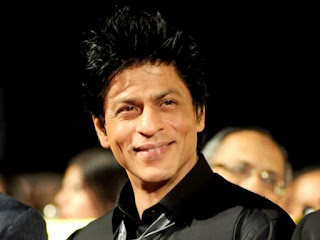Kapoor was born in Lyallpur on 3 November 1906. He received his higher education at the Edwardes
College in Peshawar . he started his career as an actor, in the silent era of
Hindi cinema, associated with IPTA as one of its founding members and who
founded thePrithvi Theatres, a travelling theatre company based in Mumbai, in
1944.
Carrer
Kapoor began acting career in the theatres of Lyallpur and
Peshawar. In 1928, he moved to Bombay with the help of a loan from an aunt.
There he joined the Imperial Films CompanyHe acted as an extra in his first
film role, though he grew up to get a lead role for his third Cinema Girl in
1929.
After featuring in nine silent films, including Do Dhari
Talwar, Sher-e-Arab and Prince Vijaykumar, Kapoor did a supporting role in
India's first film talkie, Alam Ara (1931). His performance in Vidyapati (1937)
was much appreciated. His best-known performance is perhaps as Alexander the
Great in Sohrab Modi's Sikandar (1941). He also joined the Grant Anderson
Theater Company, an English theatrical company that remained in Bombay for a year.
Through all these years, Kapoor remained devoted to the theatre and performed
on stage regularly. He developed a reputation as a very fine and versatile
actor on both stage and screen. His filmography of this period includes Mughal
E Azam (1960) where he gave his most memorable performance as the Mughal
emperor Akbar, Harishchandra Taramati (1963) where he played the lead role and
unforgettable performances as Porus in Sikandar-e-Azam (1965) and the
stentorian grandfather in Kal Aaj Aur Kal (1971) where he appeared with his son
and grandson Randhir Kapoor.
Kapoor starred in the legendary religious Punjabi film Nanak
Nam Jahaz Hai (1969), a film so revered in Punjab that there were lines many
kilometres long to purchase tickets.
He also starred in the Punjabi films Nanak Dukhiya Sub
Sansar (1970) and Mele Mittran De (1972).
He also acted in a Kannada movie Sakshatkara (1971) directed
by Kannada director Puttanna Kanagal. He acted as Rajkumar's father in that
movie.
In 1954, he was awarded the Sangeet Natak Akademi
Fellowship, and in 1969, the Padma Bhushan by the Government of India. He
remainedNominated Rajya Sabha Member for eight years
After his death in 1972, he was posthumously awarded the
Dadasaheb Phalke Award for the year 1971. He was the third recipient of that
award, the highest accolade in Indian cinema.
Personal life
Kapoor was aged 17 when he contracted an arranged marriage
with the 14-year-old Ramsarni Mehra, Their eldest child, Raj Kapoor, was born
in December 1924. By the time Prithviraj Kapoor moved to Mumbai in 1927, the
couple were the parents of three children. In 1930, Ramsarni joined Prithviraj
in Mumbai. The following year, while she was pregnant for the fourth time, two
of their sons died in the space of one week. One of their children, Devi, died
of double-pneumonia while the other child, Nandi, died of poisoning in a freak
incident when he swallowed some rat-poison pills strewn in the garden. The
couple went on to have three further children: sons Shammi Kapoor and Shashi
Kapoor (who were to become famous actors and filmmakers in their own right) and
one daughter, Urmila Sial
After his retirement, Prithviraj Kapoor settled in Mumbai,
in a cottage called Prithvi Jhonpra near Juhu beach. The property was on lease,
which was bought by Shashi Kapoor, and later converted into a small,
experimental theatre, the Prithvi Theatre. Both Prithviraj and Ramsarni
suffered from cancer in their declining years and died within a fortnight of
each other. Prithviraj Kapoor died on 29 May 1972 and was followed by his wife
on 14 June .
Please Check out the affairs and biographies of other Bollywood actors also before leaving , and dont forget to share the page with with your friends who love Bollywood . And yeah please bookmark this page so that you can find this blog easily later ---- thanks .

Comments
Post a Comment